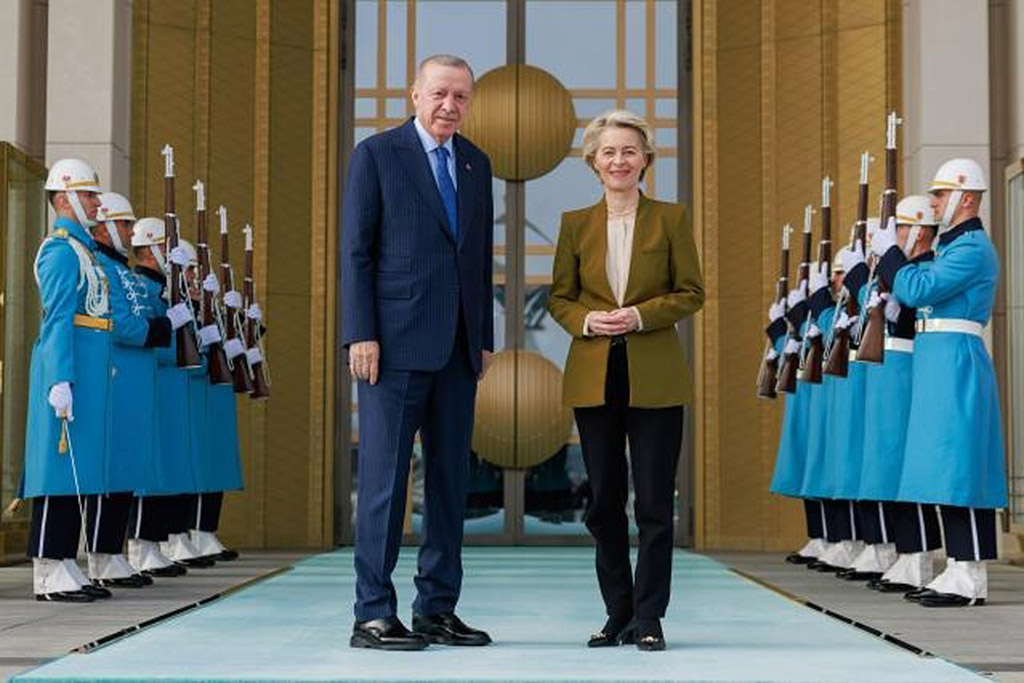European Commission President Ursula von der Leyen on Tuesday told Turkish President Recep Tayyip Erdogan that talks to resolve the Cyprus problem “must continue within the United Nations’ framework”.
Speaking at a bilateral meeting in Ankara, she insisted that negotiations be geared towards a bicommunal, bizonal, federal solution, as the UN has set out in Security Council resolutions.
Erdogan’s government has for the last four years openly favoured a two-state solution, having most recently told the UN General Assembly in September that the federal model has “lost its validity”.
There, he said there are “two separate states and two separate peoples on the island” of Cyprus, and that “the acquired rights of the Turkish Cypriots, namely sovereign equality and their equal international status, must be re-committed, and their isolation must end.”
Then, for the second year running, he called on the UN’s member states to recognise the north as an independent country.
Tuesday’s meeting also focused on matters outside the Cyprus problem, with the recent overthrow of the Assad regime in Syria being the central point of discussion.
Cumhurbaşkanı Erdoğan, Cumhurbaşkanlığı Külliyesi'nde, AB Komisyonu Başkanı Ursula von der Leyen’i kabul etti https://t.co/6YszamOcxg pic.twitter.com/nwHcE5wx8j
— Anadolu Ajansı (@anadoluajansi) December 17, 2024
On the matter of Syria, von der Leyen congratulated Erdogan on Turkey’s hosting of millions of Syrian refugees since the civil war in the country began in 2011.
“In this context, we stand by you in this effort. Since 2011, the European Union has provided almost €10 billion to support refugees and host communities. In this context, I am very happy to announce than an additional €1bn has already been allocated for 2024,” she said.
She added that this extra billion will “among other things, support the health system and refugees’ education”.
With this in mind, she said Turkey is a “key partner in the Eastern Mediterranean in terms of migration management”.
She also said economic relations between Turkey and the EU are “stronger than ever”.
“Trade between us has reached €206bn, which is a record. The EU is Turkey’s largest trade and investment partner,” she said.
Erdogan also pushed for the relationship between Turkey and the EU to deepen, saying, “there is a need, more than ever, for a stronger and more institutional relationship between Turkey and the EU”.
He called on the leaders of the EU’s 27 member states to lift “all restrictions” on bilateral relations and restart the high-level political dialogue between the EU and Turkey, suspended since 2019.
“Our common interests must not be captive to some [EU] members’ limited agendas,” he added.






Click here to change your cookie preferences